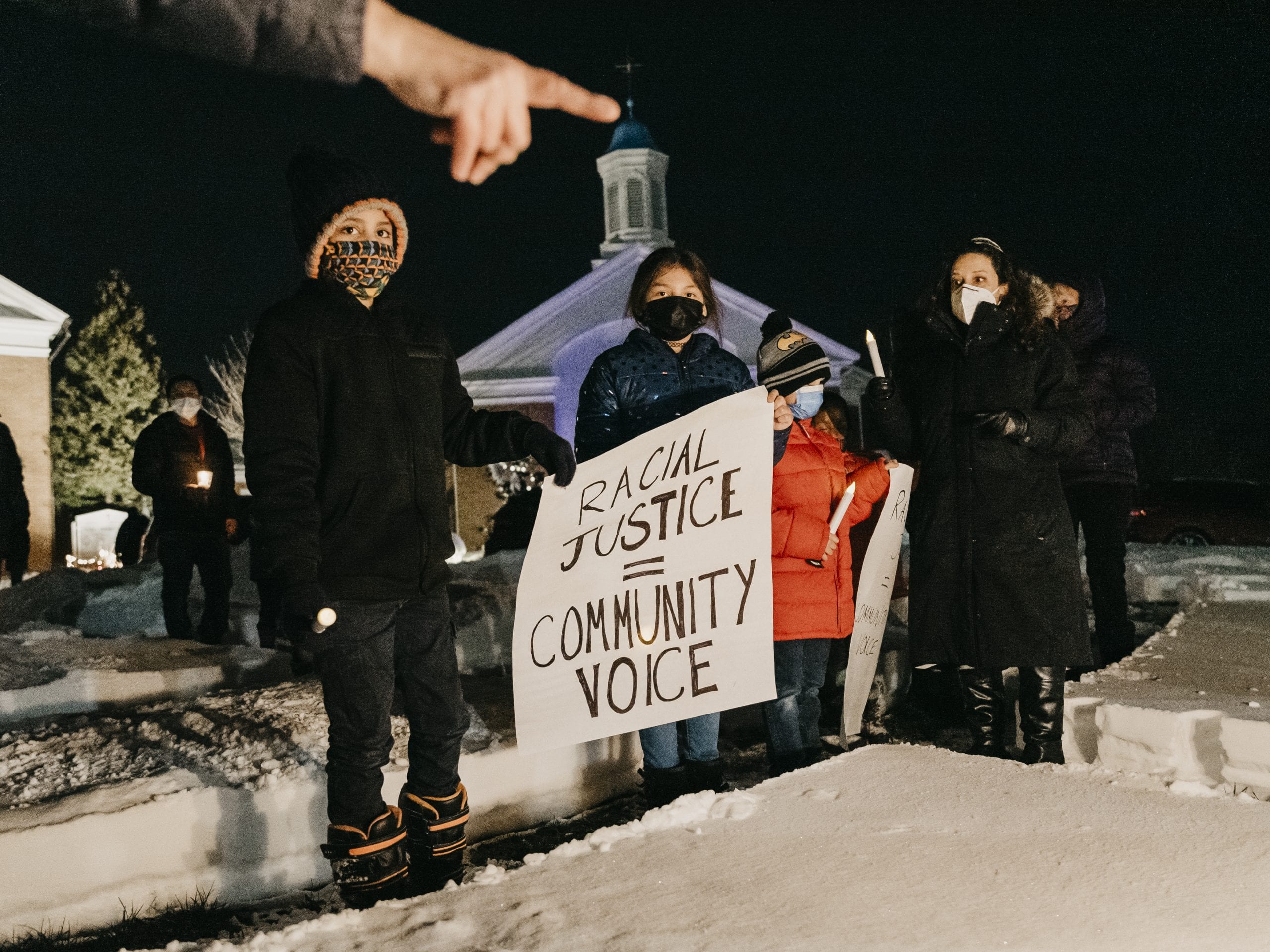SWAMPSCOTT — Racial justice advocates gathered across the street from Gov. Charlie Baker’s home Saturday night to urge him not to remove what they feel are key components to the recently-passed Police Reform Bill.
Braving the night’s freezing temperatures, roughly 40 demonstrators, along with leaders from Essex County Community Organization (ECCO) and Massachusetts Communities Action Network (MCAN), hosted a peaceful candlelight vigil outside The First Church on Monument Avenue in a move organization representatives said they hoped would persuade Baker to reconsider his decision to remove aspects of the bill that would give power to communities to hold police officers accountable and set standards around use of force and training to remain intact.
A similar protest was held outside the home of Massachusetts House Speaker Robert A. DeLeo’s house in Winthrop as well.
“It’s important there’s a standard that police officers can be held accountable to,” said ECCO Executive Director Dr. Alexandra Piñeros-Shields. “The state legislature passed a very good bill, and the governor has made changes to it that weakened it, and we felt strongly that we wanted to come and sing for justice and sing for peace.”
The bill, which Baker sent back to state lawmakers earlier this month with several amendments, includes a number of structural policing changes advocated by activists in the wake of the May 25 death of George Floyd, a Black man, at the hands of a white Minneapolis police officer.
Included in the bill’s proposed changes are the creation of a civilian-run oversight board to investigate police misconduct and oversee officer certifications, the banning of both chokeholds and use of facial recognition technology, and the removal of qualified immunity for officers found guilty of misconduct.
One of Baker’s amendments to the bill that most upset Piñeros-Shields was the removal of language defining the terms “excessive use of force” and “bias.” Although Baker has previously stated that the bill needs a clearer definition of the term “bias-free policing,” he did not provide an alternative.
“The governor has erased the definitions, so if you don’t have a definition for excessive use of force, then you don’t have a standard,” Piñeros-Shields said. “It’s hard to hold police accountable if there are no standards.”
ECCO member Mary Joyner agreed.
“It’s time to make changes to certain laws and the ways police officers handle different ethnicities,” she said. “This has been going on for quite some time, and I don’t think we’re asking for anything that isn’t acceptable.”
In a statement released Friday, Rev. Bernadette Hickman-Maynard, an ECCO racial justice organizer and pastor of Bethel AME Lynn, called on Senate President Karen Spilka, DeLeo, and Baker to uphold their commitments to racial justice by keeping Use of Force standards under the POST (Peace Officer Standards and Training) Commission in the Police Reform Bill.
“We know that it was a bold step to pass the bill in the first place. Now, we must remind our elected officials that racial justice is not only about improving standards, but also about giving power to communities of color to play a key role in setting and upholding police standards,” Hickman-Maynard said. “If the POST Commission does not have real power, the people tasked with protecting our communities are the very same ones that are causing us harm in the first place.”

